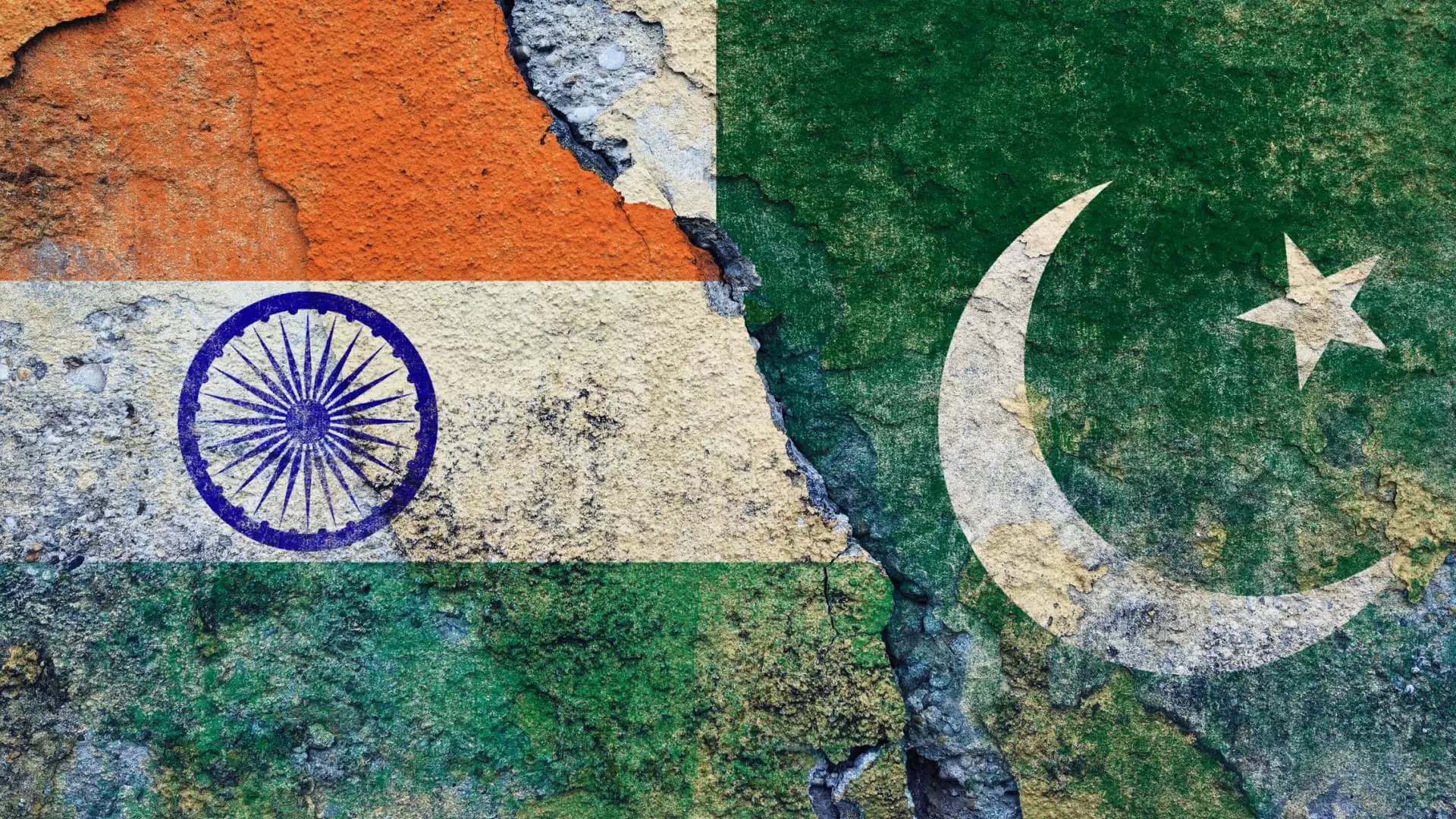In the face of escalating tensions between two nuclear-armed nations, India and Pakistan, the urgency for a lasting solution has never been more pressing. Recent diplomatic efforts, spearheaded by the United States and the United Kingdom, have temporarily halted hostilities, but the mechanism to maintain a ceasefire remains delicately tenuous. The conflict has resurfaced with alarming vigor, originating from a terrorist attack in Kashmir, a long-disputed domain, thereby further complicating already frayed relations. It is essential to recognize that this isn’t merely a regional issue; the ramifications of a miscalculated step could reverberate globally, endangering millions.
British Foreign Minister David Lammy’s remarks during his recent Islamabad visit highlight a shared responsibility on the part of international actors to engender peace. His emphasis on “confidence-building measures” is indeed critical. However, the notion of building trust seems overly optimistic in light of historical animosities and rising nationalist fervor.
Historical Context: A Legacy of Distrust
The history of India-Pakistan relations is marred by wars, border skirmishes, and a cycle of hostility fueled by mistrust. Since their partition in 1947, these two nations have failed to foster a stable framework for dialogue, continuously recirculating grievances instead. The contested regions, especially Kashmir, serve as a flashpoint, igniting conflicts at the slightest provocation. The rapid escalation of missile firings is a reminder of the potential devastation that may follow if resolutions remain elusive.
Moreover, the ongoing suspension of the Indus Water Treaty by India raises significant concerns, as this agreement is foundational to the water supply for Pakistan’s agriculture-dependent economy. By jeopardizing this treaty, India risks pushing Pakistan further into a corner, exacerbating not only bilateral tensions but also humanitarian crises.
The Role of External Actors
While it is heartening to witness the engagement of Western countries in mediating peace, their involvement must be approached with caution. The historical precedent shows that outside intervention often complicates rather than clarifies matters. Hence, it is imperative that any proposals for dialogue do not become yet another exercise in superficial diplomacy devoid of genuine commitment from all parties involved.
Even the endorsement of third-party talks by U.S. President Trump may not yield expected outcomes without concrete steps towards accountability and transparency from both India and Pakistan. Dialogue has always been the most effective remedy for grievances, yet it requires both sides to bring sincerity to the table. Mutually beneficial agreements cannot be reached when confidence in one another is so low.
Keeping the Momentum Alive: Challenges Ahead
The fragile ceasefire that was declared is commendable, yet the situation on the ground is perilous. Diplomatic resolutions must transcend mere verbal assurances; they must manifest in tangible actions that influence ground realities. Security forces from both nations must be dissuaded from aggressive posturing, and any violent acts must be condemned unequivocally.
Lammy’s assertion that Britain will aid Pakistan in counteracting terrorism is crucial; however, it’s equally essential for India to address domestic concerns surrounding nationalist sentiments that continually escalate tensions. If both countries wish for enduring peace, they must prioritize dialogue over deterrence, even if it requires difficult compromises.
The Global Community’s Responsibility
The responsibility for peace is not solely on the shoulders of India and Pakistan; the global community has a vital role to play. Institutions like the United Nations must facilitate conditions conducive for dialogue, providing not only mediation but also ensuring that parties adhere to international treaties. With the South Asian landscape at stake, failing to take decisive action against escalation represents a dereliction of duty on the part of global powers.
As international actors strive to stabilize the relationship between India and Pakistan, they must focus on addressing the root causes of animosity rather than merely treating symptoms. A durable peace in the region cannot be achieved through temporary measures; it necessitates a collective commitment from all involved to foster understanding, accountability, and cooperation. Only then can the shadow of conflict give way to a brighter, more peaceful future.


Leave a Reply